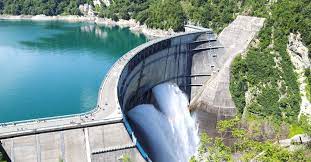
On Wednesday 28 February 2024, the Council of Ministers adopted a communication concerning an expression of interest by Eni Côte d’Ivoire Limited in offshore oil blocks CI-504, CI-526, CI-706 and CI-708. Preliminary exploration work undertaken by Eni in the sedimentary basin has revealed “convincing indications of the presence of hydrocarbons in offshore oil blocks CI-504, CI-526, CI-706 and CI-708”, according to an official note. Assured by its services of the presence of hydrocarbons in these offshore oil blocks, the Ivorian government has given its agreement to production sharing contract negotiations with the oil company Eni Côte d’Ivoire.
On 27 August 2023, the Italian energy group ENI began producing oil and natural gas from the deepwater Baleine field in south-east Côte d’Ivoire. The resources of the Baleine field are estimated at 2.5 billion barrels of crude oil and 3,300 billion cubic feet of natural gas. The ENI Group’s start-up of production from the Baleine field, the largest hydrocarbon discovery ever made by an oil company in Côte d’Ivoire, strengthens the country’s hopes of energy autonomy. With an estimated production capacity of 150,000 barrels per day by 2027, exploitation of the Baleine field should boost national oil production to around 200,000 barrels per day, compared with just 30,000 barrels per day today.
According to projections, by 2026 this field should generate nearly 200 million cubic feet of gas, increasing the country’s natural gas production capacity to nearly 430 million cubic feet, thereby helping to improve control over the inputs needed to generate electricity. The Baleine field is net zero carbon production. Production started less than two years after the first discovery, in September 2021, and less than a year and a half after the second discovery, in July 2022, by ENI and its Ivorian partner Petroci Holding.
Source: apanews.ne
